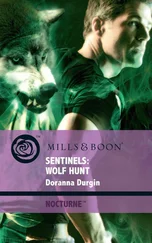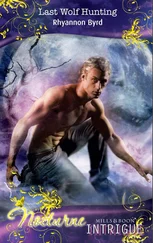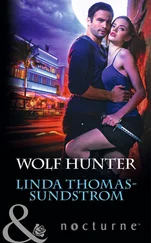‘You started to train with the sabre to learn to defend yourself. But arms are like wine - in the end they take you over. Lukas, you have become the scabbard of your blade.’
‘As long as this investigation remains unresolved, I will not be able to give it up. Afterwards, I will try ...’
Warrant Officer Cauchoit rode closer.
‘You’re making it too complicated. Better to have ten days of glory than ten thousand of mediocrity.’
‘What a magnificent epitaph,’ replied Margont. Then, turning to Relmyer, he added: ‘Let’s suppose that you win these three duels: how many duellists will be attracted by that triple ... success?’
‘All of them of course! My duel with Piquebois is not the only reason for this situation. My reputation carries weight. It’s not very easy to—'
To chase away the flies Relmyer’s horse had just lifted its head when part of it burst open under the impact of a shot. Margont, his face splattered with blood, saw the horse collapse on its side as Relmyer was thrown to the ground, a leg and a stirrup in the air, his hands pulling on the now useless reins. This first bullet was immediately followed by a concert of detonations. A hussar in the vanguard, mown down, fell backwards, while the mount of his companion collapsed along with his trooper. Clouds of white smoke appeared everywhere: in the thickets, behind the trees ... A grey silhouette took aim at Margont but Lefine immediately fired his pistol, catching the figure in the thigh.
‘It’s the militia! Death to the Landwehr!’ cried Cauchoit.
Sabre in hand, and dragging his trumpeter friend and some hussars in his wake, he charged straight at a mass of infantrymen that had formed in front of them. These Austrians were not professional soldiers. They had thought that the surprise and success of their first volley would send the French into disarray. The thirty amongst them who had just made themselves defenceless in order to adjust their sights were struck head on by the troopers. The warrant officer moved as if in a trance. His sabre attacked furiously, wounding, killing, killing, wounding ... The trumpeter aimed his blows exclusively at faces and throats, leaving nothing behind him but dead and disfigured bodies, dehumanised corpses. The troop of militia disappeared beyond a clearing; the carnage had sewn confusion amongst the Austrians. Although they were still more numerous, and for the most part sheltered behind trees, many of them fled, vanishing through the vegetation. Others continued to riddle the French with gunfire. The poor guide they had
pressed into service was taken for a traitor and received two balls in the back. The hussars plunged at a trot into the wood, laughing in the face of their fear. They passed no one without mowing him down with their pistols or laying him out with their sabres. Relmy-er, already on his feet, having freed himself, but covered in his horse’s blood, feverishly scanned the thickets. He paid no attention to his men or to the battle that raged around him. He pointed in the direction of the shot that had killed his horse.
‘It’s him! He killed Franz! Him!’
Such a coincidence was impossible. Had Relmyer been driven mad? Or had they been betrayed? In the woods, the officer Relmyer was pointing to detached himself from the combatants to take flight. The Austrian wore a grey coat with red cuffs and lapels. The elegance of his uniform contrasted with the coarse coats of certain of the militia. Light brown hair could be seen under his black bicorn, braided with gold. Margont briefly caught a glimpse of the man’s face. He seemed to be in his forties. Relmyer had launched into the woods in pursuit, his pistol in one hand, his trusty sabre in the other. All about him there was carnage. The hussars, although very much inferior in number, definitely had the upper hand over their adversaries. They attacked and charged at anything that moved. Their horses plunged into groups of militia, knocking into bodies, and the troopers wielded their sabres as though they were mowing the grass. Margont found himself facing a wave of Austrians in disarray. How many were there? Dozens? He thought he was going to be slashed to pieces but his very presence exacerbated the panic of the fleeing Austrians. But the tide of humanity ricocheted around him and the militia scattered in other directions. Margont wanted to pursue them, but hands were raised all around him. He had just taken fifteen prisoners. A hussar burst out of a thicket brandishing his sabre. It was the trumpeter from the élite company. He whirled like the wind into the midst of what he took to be a pocket of resistance and launched an attack towards the face of the horseman he took to be the leader of the rabble. Margont scarcely had time to duck down by his horse’s neck. The point of the sabre pierced his shako. He wanted to cry out to
set the trumpeter straight, but he was long gone, chasing other moving figures. Had he really been mistaken in all the confusion? Margont seized one of his two horse pistols and had to fight against the urge to shoot at the horse of the madman. Pagin arrived in the meantime, his sword bloody, his face scratched by branches. He looked in astonishment at Margont and the captives.
‘Victory!’ he bellowed, standing up in his stirrups, his sabre pointing towards the sky.
His shout made the fifteen Austrians flinch.
Relmyer returned at the run. ‘He’s escaping! Pagin, your horse!’
The hussar did not dare protest and got down from his mount. Margont tried to say something, but Relmyer bounced into the saddle and set off, spurring the horse until it bled. Margont followed, abandoning Pagin, who, disdainful of the prisoners, looked for someone to fight. The two horsemen overtook Warrant Officer Cauchoit, who was a terrifying sight. He was covered in blood and had eviscerated everyone who opposed him. He was a veritable angel of death.
Margont found himself in an artificial clearing. Some Austrian horses were stamping and restless, tied to branches. At the other end of the expanse of felled trees, figures were fleeing on horseback.
‘He’s not far ahead of us!’ cried Relmyer.
Margont and Relmyer’s horses dashed along, devouring the distance. They were far superior to the old nags the Austrian army furnished the militia with. Little by little the fleeing man became easier to make out. The officer with the bicorn pointed his weapon in their direction.
‘That’s him!’ shrieked Relmyer.
‘Duck!’ warned Margont.
A detonation sounded but the ball missed its target. The fugitive changed tactics, tugged on his reins and disappeared into the forest. Relmyer was quivering.
‘He’s heading north-east. He wants to get over to the Austrian side but the Danube is blocking his way.’
The two pursuers were engulfed in their turn in the woods. The figure of the Austrian appeared and disappeared intermittently. Margont used shot after shot from his horse pistol, trying to hit the Austrian’s mount, but in vain.
‘We’re miles away from our army!’
‘Where did he go?’ agonised Relmyer.
The man seemed to have been swallowed by the vegetation. Margont slowed his horse and saw him cut off down a path.
‘That way.’
The fugitive had taken a badly maintained path. Margont had just made out his grey uniform through the jumble of thicket. Relmyer, who had almost got lost, had been overtaken by his friend and was hitting the flank of his mare with the flat of his sabre. His horse took off like a whirlwind at twice the speed of Margont’s mount, forcing him off the path. Margont steadied himself and settled back into his galloping rhythm. He felt fear swelling in him. He was now convinced that nothing about the fugitive had anything to do with chance. He and Relmyer saw only a random labyrinth of vegetation whilst their adversary moved as easily as if he were strolling about the streets of his hometown. Margont no longer felt like a hunter tracking a wolf; he felt like a pike throwing itself onto a fish-hook.
Читать дальше











